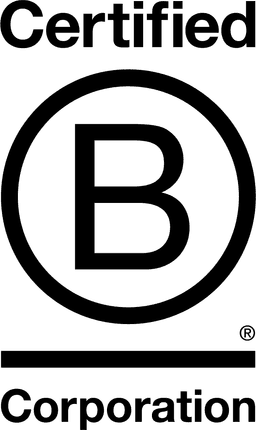

Terratinta Group Srl SB

Emilia-Romagna, Italy
August 2022
Other non-metallic minerals
Wholesale/Retail
Australia,
Austria,
Belgium,
Canada,
China,
Denmark,
Finland,
France,
Germany,
Greece,
Ireland,
Israel,
Italy,
Japan,
Luxembourg,
Netherlands The,
New Zealand,
Norway,
Poland,
Singapore,
South Korea,
Spain,
Sweden,
Switzerland,
United Arab Emirates,
United Kingdom,
United States
Terratinta Group was founded in 2017 from the union of two ceramic companies and their brands: Terratinta Ceramiche and Ceramica Magica. In just a few years, the group has grown significantly, with both brands now present in over 50 countries worldwide. In 2018 we launched Sartoria, a new brand dedicated to small formats and design-driven surfaces. The following year, in 2019, we acquired Micro, a brand that explores new directions in ceramic design with a distinctive and experimental approach. At the end of 2020, we proudly became a Benefit Corporation, updating our bylaws to include social and environmental goals as part of our company’s purpose. This transition represents a commitment to act more responsibly, sustainably and transparently, going beyond profit and embracing a broader vision of value — one that includes people, communities and the planet. Our growth has always been guided by a few essential values: passion, simplicity and professionalism. We are a young and dynamic group in an ultra-competitive industry, but one that believes in evolving with purpose and integrity. Because our story is #notaclassicstory.
Overall B Impact Score
Governance 18.5
Governance evaluates a company's overall mission, engagement around its social/environmental impact, ethics, and transparency. This section also evaluates the ability of a company to protect their mission and formally consider stakeholders in decision making through their corporate structure (e.g. benefit corporation) or corporate governing documents.
What is this? A company with an Impact Business Model is intentionally designed to create a specific positive outcome for one of its stakeholders - such as workers, community, environment, or customers.
Workers 23.8
Workers evaluates a company’s contributions to its employees’ financial security, health & safety, wellness, career development, and engagement & satisfaction. In addition, this section recognizes business models designed to benefit workers, such as companies that are at least 40% owned by non-executive employees and those that have workforce development programs to support individuals with barriers to employment.
Community 17.4
Community evaluates a company’s engagement with and impact on the communities in which it operates, hires from, and sources from. Topics include diversity, equity & inclusion, economic impact, civic engagement, charitable giving, and supply chain management. In addition, this section recognizes business models that are designed to address specific community-oriented problems, such as poverty alleviation through fair trade sourcing or distribution via microenterprises, producer cooperative models, locally focused economic development, and formal charitable giving commitments.
Environment 26.8
Environment evaluates a company’s overall environmental management practices as well as its impact on the air, climate, water, land, and biodiversity. This includes the direct impact of a company’s operations and, when applicable its supply chain and distribution channels. This section also recognizes companies with environmentally innovative production processes and those that sell products or services that have a positive environmental impact. Some examples might include products and services that create renewable energy, reduce consumption or waste, conserve land or wildlife, provide less toxic alternatives to the market, or educate people about environmental problems.
What is this? A company with an Impact Business Model is intentionally designed to create a specific positive outcome for one of its stakeholders - such as workers, community, environment, or customers.
Customers 3.4
Customers evaluates a company’s stewardship of its customers through the quality of its products and services, ethical marketing, data privacy and security, and feedback channels. In addition, this section recognizes products or services that are designed to address a particular social problem for or through its customers, such as health or educational products, arts & media products, serving underserved customers/clients, and services that improve the social impact of other businesses or organizations.